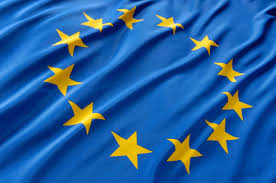My privileges as a white person in a racist world have never been so clear to me as they have been this week. The first thing I must do as a white person is acknowledge this. Then what? I haven't felt one moment of the vague unease to downright fear that have plagued actual British citizens who are non-white in the wake of this EU referendum. But I am the immigrant. I am the one who ostensibly is stealing their jobs. I'm not a citizen, but a resident with leave to remain and work, and I'm here because of the EU. No one, in person, on social media, in the papers, through veiled statements by politicians, through scare-mongering posters, *no one* has made me feel like I am unwanted. This is not about jobs, or the economy, or the strain on the NHS. It is about fear of people with different skin colours, different accents, different first languages. It is about white supremacy in the UK mixed with an Anglo-centric fantasy of One Nation, One Colour, and One Language, however cleverly disguised the rhetoric.
I have lived my whole life as a privileged white person. As a child in the 80s, I lived in a small Central Kentucky town and was exposed regularly to open, bold, and unapologetic racism. White people who hated African Americans spoke about it openly and casually. But it wasn't just hate, it was firm, unquestioned belief in the supremacy of white skin. A few memories stick out, things that now seem like madness, but where, sadly, as a child, just normal. I remember some of my white friends from the Baptist church moved from the city school to the county school when I was in the 3rd grade. I asked them why, and they told me that their parents were worried that there were "too many n*ggers" in the city school system. This was normal. In middle school I remember one of my white friends telling me how surprised he was, upon us seeing one of our black friends get cut on the playground, that his blood was red. "I thought it'd be brown or something, like mud" he said. This was normal. And it only dawned on me through the years just how horrific it all was.
What I didn't understand as a child, and what I am trying to understand as an adult but will never really be able to, is what it is like to live on the other side of this, what it is like to always be seen according to a normalised sense of otherness. I don't actually know if the naked racism of my childhood is worse than the more politically savvy version we are encountering now in modern Britain, which is what has driven the result of this EU referendum. It seems the end result is the same: people feeling like they don't belong for reasons of their essential nature - birth, skin colour, gender, sexual orientation, culture.
I have learned a lot from living in different places with different kinds of intolerances. Here in Glasgow, UK, the divides that fuel intolerance are different than they were in small town Kentucky. Polish people, Eastern Europeans, Africans, Indians, Pakistanis, Travelers, the list goes on. This doesn't even cover the whole insular British madness of religious sectarian hatred. But why have I, through all of this, always been OK? Why do cabbies in Glasgow always feel it's OK to complain about immigration to me? Why, even despite my obviously different accent, my annoyingly direct Southern American communication style, my lack of understanding of Scottish emotion, my indifference to club football, why am I not the one to complain about? The only answer I have is that I tick all the boxes of normalised privilege in a racist world. I'm white, I speak English, I'm a man, I'm heterosexual. But I don't want to live in this world anymore.
